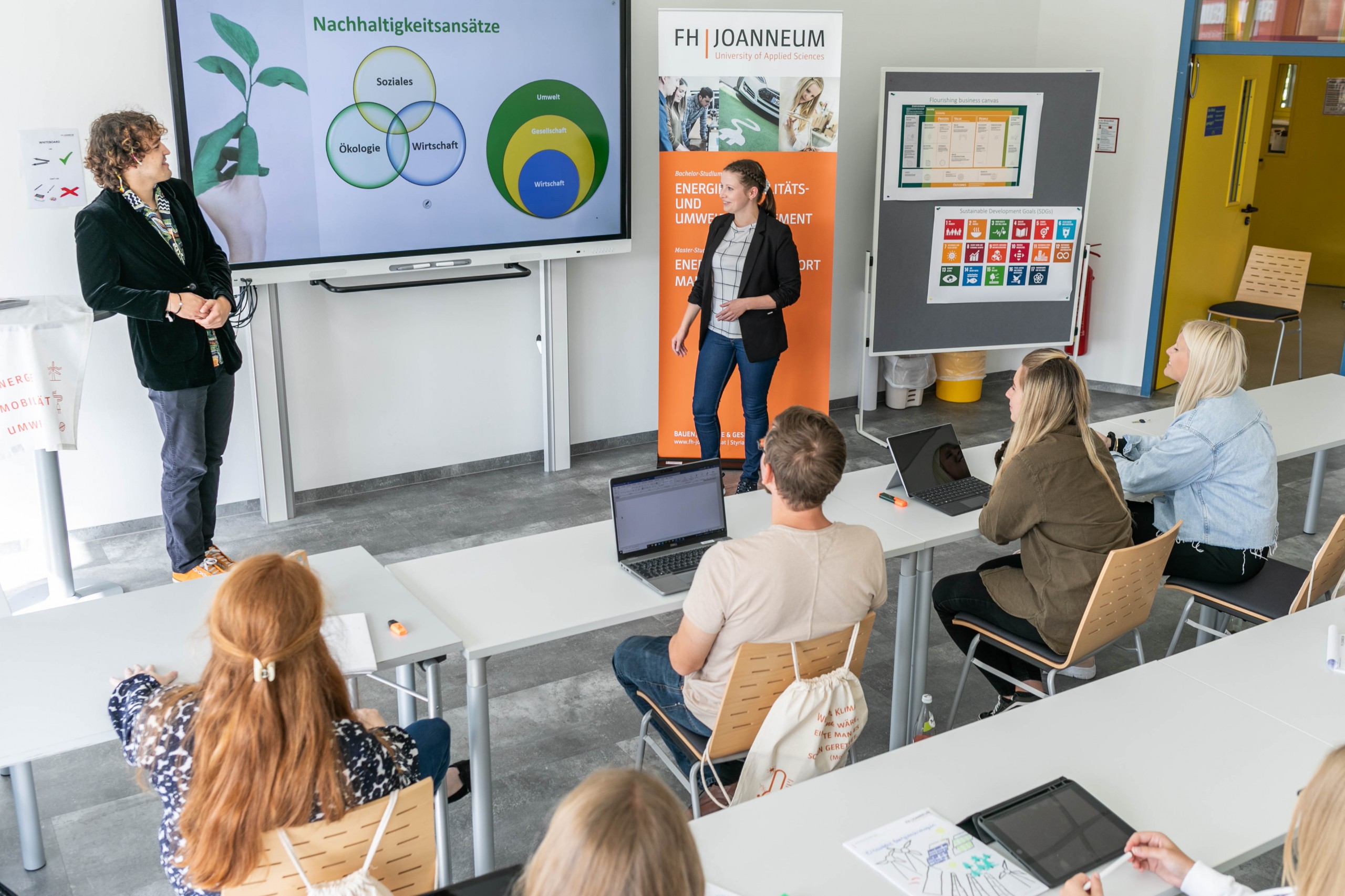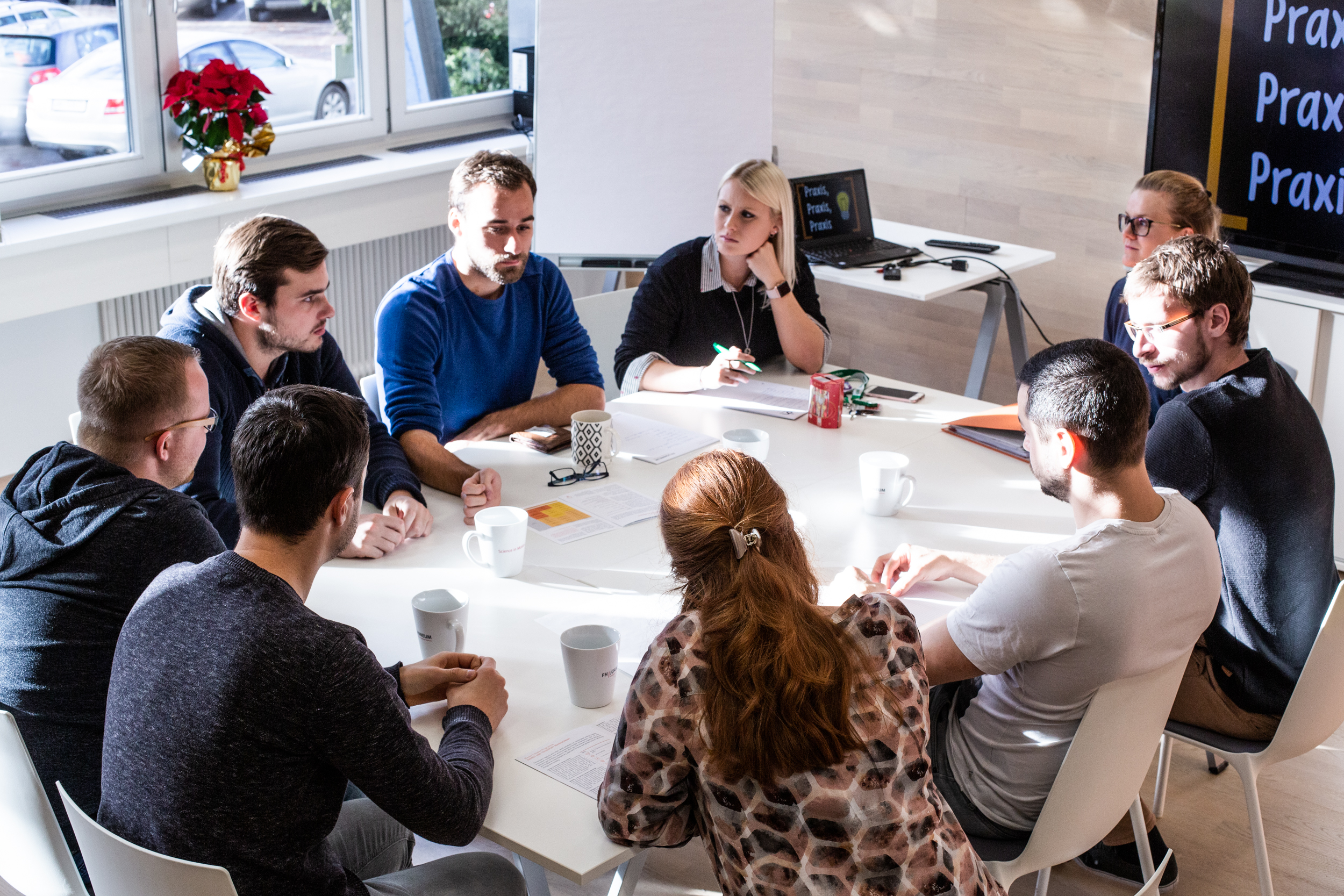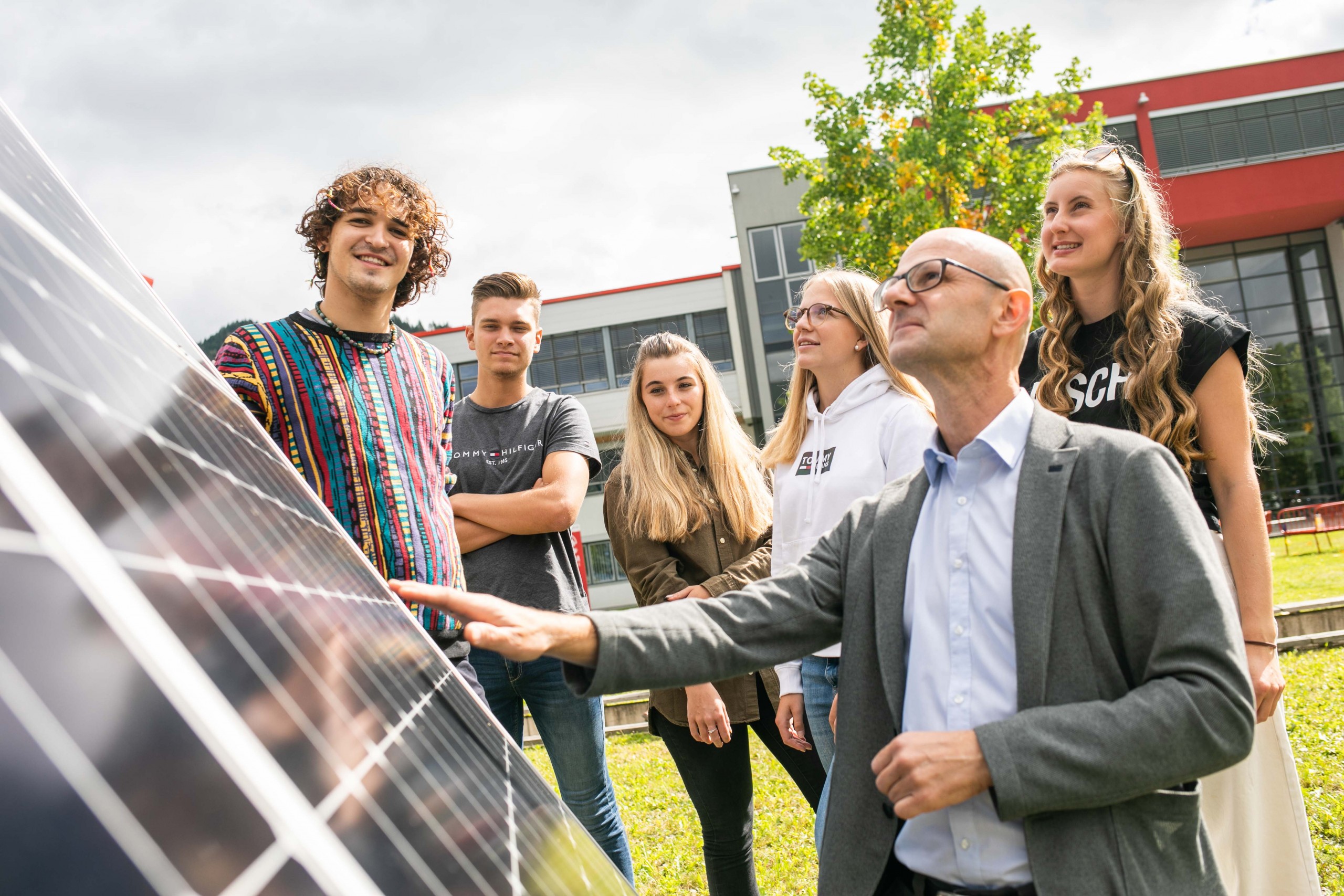
Ready, study, go!
Start your studies top informed.

Study your dream!
All information about studying.

Stay in touch!
Stay connected with the university.

Study with Purpose!
Discover our study programmes.

Advance with Purpose!
Lifelong learning and thinking ahead.

Research with Purpose!
Research from idea to application.

Better together!
As a university we create new opportunities.
Energy Technologies
My StudiesClimate change, the need for innovative energy generation and increasing pressure on our energy systems are all confronting regions and cities with major challenges for the future. Strategies to manage the energy transition need to be developed if we are to ensure that cities remain liveable for generations to come. Join us and help shape these solutions. During your studies you will focus on strategies in the field of sustainable energy supply and the digitalization of our energy system. If you are striving for a career which focuses on modern energy management, then this degree programme prepares you for tomorrow’s world of work.
Key subject areas
Sustainable energy technologies
In your studies you will gain a solid understanding of state-of-the-art energy technologies, system characteristics and boundary conditions with all the relevant trends and innovations to master a sustainable energy transition. In this specialisation you will discover a broad range of modern energy technologies: from renewable energy generation, grid planning, power-to-X-technologies to industrial energy efficiency.
In our Energy Analytics and Solution Lab you will take a practical approach to issues of innovative energy generation, distribution and storage, with a particular focus on smart technologies and prosumerism. Virtual reality applications will not only enhance your insight into energy plants of the future, but also enable you to work in an interconnected and interdisciplinary way with our partner labs. Practical, interdisciplinary projects and excursions represent a cornerstone of your applied master programme.
To access the youtube video, click the button below. Please note that doing so will share data with third-party providers.
Obligatory module: environmental management and climate protection
Global warming, energy transition, smart mobility: these and many other developments, whose full impact we cannot yet predict, will shape the decades to come. This uncertainty demands that we prepare our students to face a variety of challenges and enter a flexible, project-based working environment. A key element in this preparation is the obligatory module in which all students explore the key factors influencing our future.
You will immerse yourself into the mechanisms of climate change and its effects on the planet. You will gain deep insights into the areas of environmental reporting, environmental process engineering, big data simulations, but also in the field of management with applied case studies in strategic and sustainability management.



Basic introductory module
In order to open up the programme to students from a wide range of disciplines, we offer graduates of Bachelor’s degrees with no relevant background a basic introductory module in industrial and engineering management during the first semester which will prepare them for the Master’s degree programme.
Expand your interdisciplinary skills!
Electives: Highly relevant and up-to-date
Thorough training in a variety of specialisation areas is needed in order to shape our future environments. We offer you a multifaceted elective module which gives you every opportunity to expand your horizons and strengthen your interdisciplinary skills.
You can choose courses amounting to a minimum of 34 ECTS credits to enhance your specialist knowledge. We offer electives in the subjects of sustainable building management, autonomous driving technologies, environmental analytics, innovation and change management or international energy markets.
International focus
Cities all around the world are growing, facing planners with ever greater challenges in urban contexts. How do you supply tomorrow’s cities with sustainable energy? Which forms of mobility need to be established? How can challenges such as particulate matter emissions and global warming be managed in an innovative and creative manner? The core issues of this programme are relevant worldwide, and are ideal for discussion in an international context. Working on supervised projects you will develop solutions for the future together with students of different nationalities.
We also enable our Master’s students to spend a voluntary semester abroad at one of our partner universities. Learn about international approaches to energy technology issues, environmental protection and mobility, and network with international experts.
